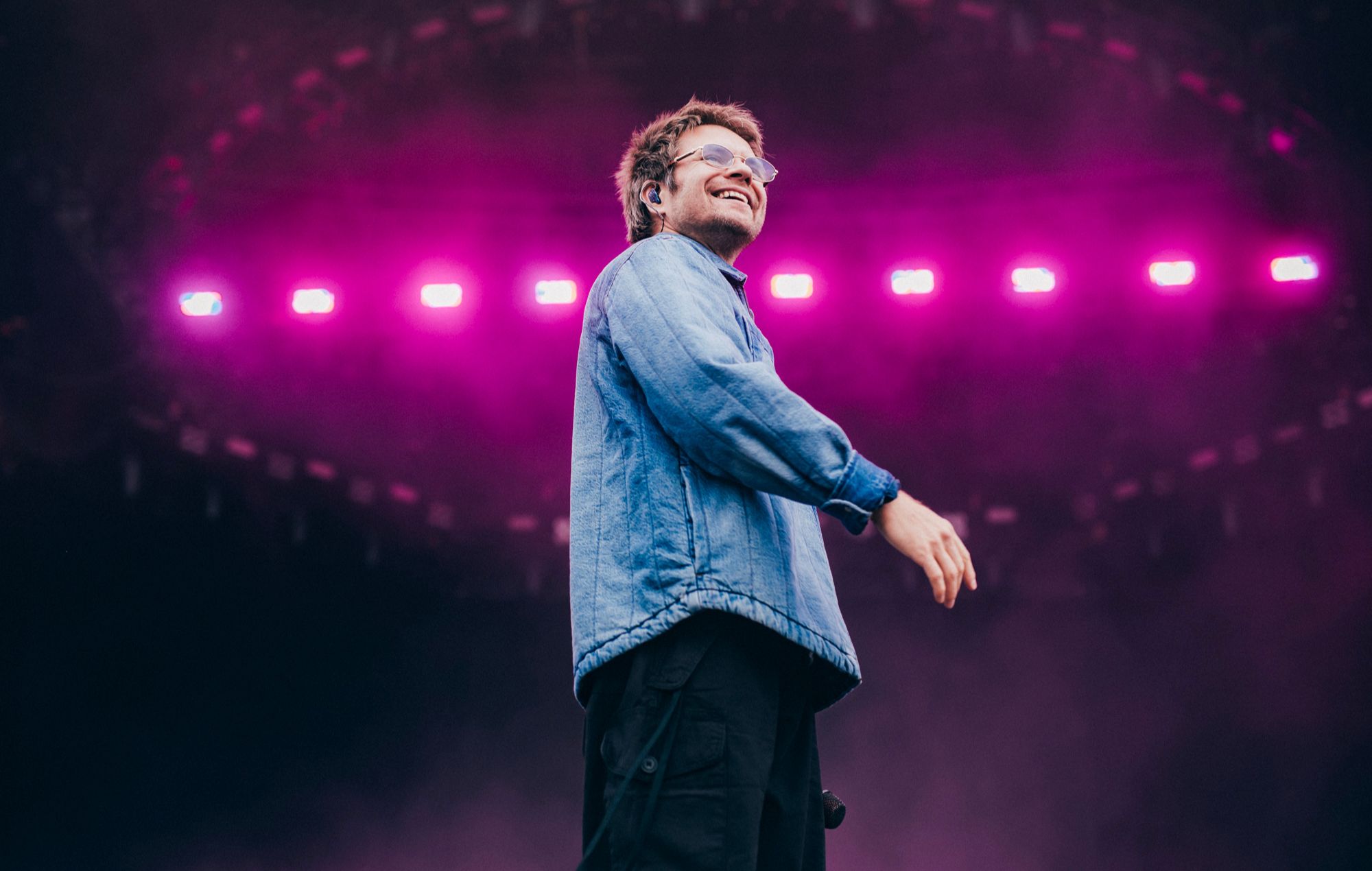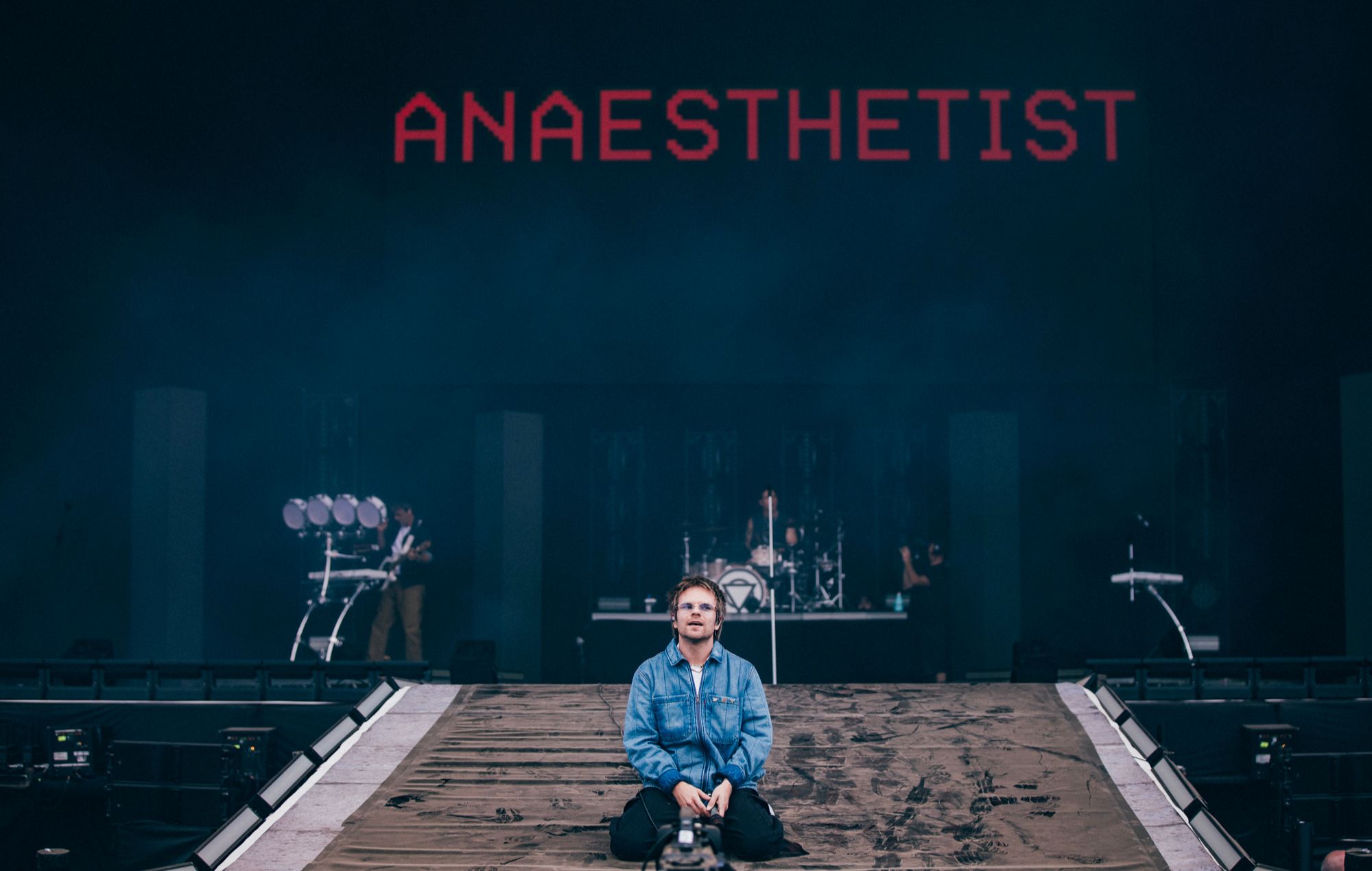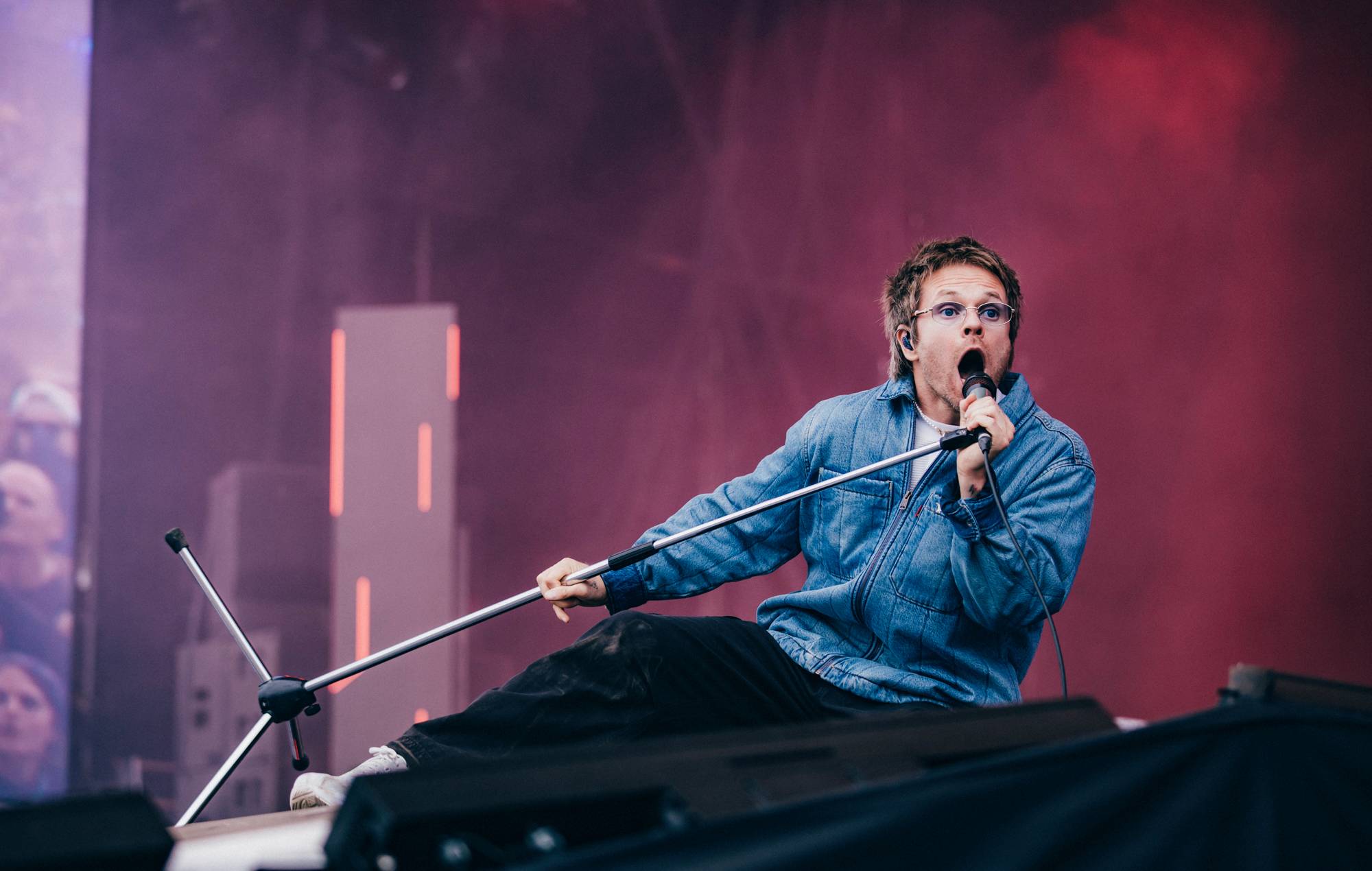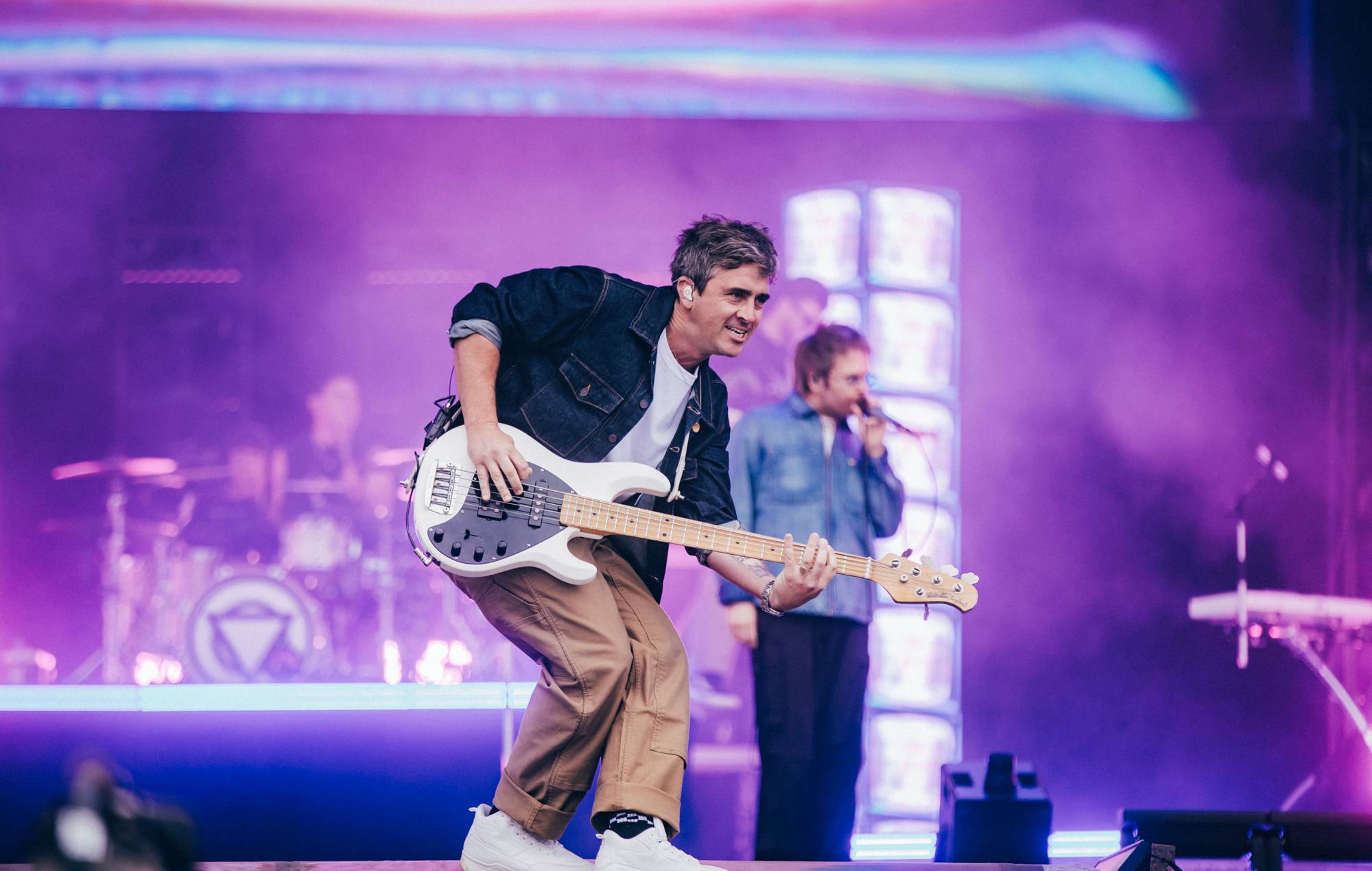Check back here for all of NME’s coverage of Reading & Leeds 2025 so far.
Enter Shikari’s Rou Reynolds on supporting Palestine: “I don’t want to see our band as mindless entertainment”


Rou Reynolds has spoken to NME backstage at Reading 2025, explaining why it is vital for Enter Shikari to keep using their platform to speak out in support of Palestine, as well as plans for new music and the momentum behind their £1 ticket levy to support grassroots venues.
The frontman opened up to us before his raucous set over at the main stage yesterday (August 23), which saw the band raise awareness for climate change, share their solidarity with the people of Gaza and look back at their long history with the dual festival.
Speaking ahead of the set, Reynolds looked back at how R&L provided not only their first festival set, but remains the only festival that Enter Shikari have “played probably 10 times, if not more.”
“There are so many memories here and a nostalgic excitement built into this festival. It’s the only one that will definitely give us butterflies before we go on,” he said. “Festivals are like the best part of this job, and it’s great that, even this morning when we were rocking up, we saw some of the same faces in the security. They’ve often said that we were like the house band for a few years, so it just feels like coming back home.”

Check out the full interview with Reynolds below, where he also tells us about their ‘Live At Wembley’ film, their plans for new music, the movement they started by trying to support grassroots venues and why speaking out against injustice is at the core of their identity. You can also watch the interview in full above.
NME: Hi Rou. Why was your performance at Wembley Stadium one that you wanted to capture and make into a live film?
Rou Reynolds: “It was the first time we played Wembley Arena! Before, we always chose Ally Pally, because I can walk there from my house. It has this beautiful history in it and we’ve had an amazing time there every time we played. But we thought it was about time we played Wembley Arena, and it felt like a big moment for the band – we’re about 20 years into it now. It just felt like a real occasion. It was the most theatrical we’ve been too. We’ve always been very much involved in every part of the show, but with that one, we really built this overarching themed show. It was great.”
Something that resonated with a lot of people at that gig was your impassioned speech supporting Palestine. Why was it important for you to do that?
“To be honest, it’s a natural thing for us to do because we grew up in a thriving local hardcore punk scene, and that’s what you did! It wasn’t even just the local bands; I grew up listening to Rage Against the Machine too. When I was 15, I didn’t know the intricacies of what Zach [De La Rocha, singer] was talking about, but that righteous rage and indignation, it was very, very alluring.
“I want to be involved in that. I don’t want to see our band as mindless entertainment. There’s space for escapism, and while we try to provide elements of that as well, at the end of the day, we are given a mic and there are things happening that shouldn’t be happening.”

You also joined names such as Pulp, Fontaines D.C., and IDLES in signing the petition defending artists’ right to freedom of expression. Would you say it’s at the core of Enter Shikari to use your platform to speak out for what you believe in?
“It’s been there from the beginning. With those early shows that we’d go to, there’d be all sorts of bands [speaking out]. Whether it was local politics and fighting against the council who were trying to close down youth centres, or discussing bigger things in the world, it seemed like creating a community was the main thing. People often say, ‘What’s the point in doing that or going to a protest?’, but with the connections you make there and the more emboldened you feel, the more people want to get involved.
“With the situation in Gaza… you think it’s got as bad as it can get, and then each day it just gets worse and worse. It would be harder not to say anything and to go and perform as usual. Say you’ve just been scrolling through a livestreamed genocide and now you’re on stage and like, ‘OK, let’s create escape and be happy and pretend everything’s fine’ — that’s cognitive dissonance. I can’t operate in these two worlds separately; they have to fuse somehow. If that makes for a slightly awkward little moment on stage, it doesn’t matter. At least you’ve used your platform for something.”
One way that you’ve spearheaded change is with your proposed ticket levy, which sees £1 from every ticket sold donated to supporting the UK grassroots music scene. Did you expect that it would be a movement that would see the likes of Coldplay, Katy Perry, and Sam Fender following suit?
“No. For us it came through frustration that people weren’t trying things. There was always this brick wall that you always came up against when you wanted support like grassroots venues. Ideas for change were just thrown out. But, because it was our tour, we were like ‘Well, we need to do something. Let’s tear down this brick wall’.
“Then to see the momentum that it’s gained since then has been awesome, and hopefully we keep it up. They do funding of the broad arts so much better in other countries. Here, we fund the higher arts quite well, but everything else gets cast aside. People often forget that art’s main purpose is to create human connections and community. It doesn’t matter where you sit in that hierarchy; it’s still doing society a service in some way. Grassroots venues were how we cut our teeth. We try to do tours every now and then that visit these places, because we wouldn’t be here without them. Same with most other acts.”

Last time we spoke to you, you hinted that you were going back to the studio and thinking about new music. Where are you up to now?
“It is a very slow process, this one. There are all sorts of life stuff happening too – some exciting, and some difficult – but we’re still working on it and don’t want to rush it. We’re seven albums deep, so there’s no reason for us to throw out another. We’d much rather think, ‘OK, how can we make the eighth album interesting and exciting for us?’ We never want to just replicate the same vibes or same musical alleys that we’ve gone down before… But we have got some stuff brewing for sure.”
Would you say that acting in the War Of The Worlds stage show has influenced it in any way?
“Yeah. I think with whatever you do, you absorb it and it will probably have some influence. There’s no way that that couldn’t! It was such an interesting, otherworldly experience. It felt like a dream. I was away for almost two months and was being a Victorian soldier in this crazy dream! So yeah, whether it’s stagecraft or the musicality of [producer/composer] Jeff Wayne, all that stuff will seep in whether it’s a conscious decision or not.”
The post Enter Shikari’s Rou Reynolds on supporting Palestine: “I don’t want to see our band as mindless entertainment” appeared first on NME.




